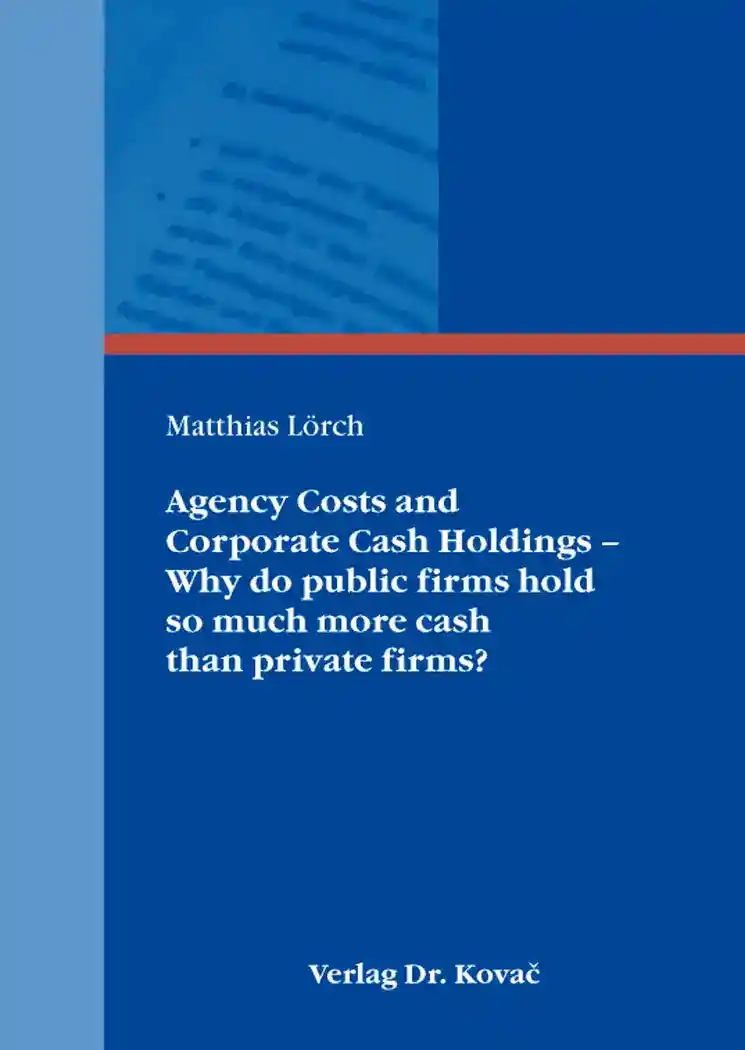Matthias LörchAgency Costs and Corporate Cash Holdings – Why do public firms hold so much more cash than private firms?
Finanzmanagement, volume 130
Hamburg 2018, 412 pages
ISBN 978-3-339-10206-5 (print)
ISBN 978-3-339-10207-2 (eBook)
About this book deutschenglish
Non-financial companies’ balance sheets exhibit puzzling high cash reserves. In particular publicly traded firms show much higher cash holdings than private firms. This book provides a comprehen-sive literature review on the theoretical and empirical findings on corporate cash holdings. In the review of the theoretical models the three main theoretical approaches (trade-off model, pecking-order model and agency theory) are discussed and reconciled with the concept of financial flexibility. Based on the theoretical approaches empirical predictions are derived. The overview on the empirical literature builds on these predictions. It is shown that there is evidence for all models, with the evidence for the agency model being somewhat weaker than for the other models.
The empirical part of the book analyses first the general drivers of corporate cash holdings and extends the existing literature, which is typically based on US data, by using data from German firms and by focusing mostly on private firms. The results confirm the findings of existing literature and thus show that the factors influencing cash holdings are the same for public and private firms as well as for German firms and firms from other countries.
In the second part the causes of the higher cash holdings of public firms compared to private firms are examined. A possible explanation are agency cost arising through diverging interest between owners and managers, which are expected to be higher for public than for private firms. The empirical estimations include the general factors influencing cash holdings and additionally use different proxy variables to measure the extent of agency conflicts a firm is expected to face. The empirical results provide strong evidence for agency costs being able to explain a relevant share of the higher cash holdings of public firms. Thus the study enhances the empirical evidence for the relevance of agency costs for corporate cash holdings in general and shows that these agency costs cause a significant part of the higher cash balances of public firms.
